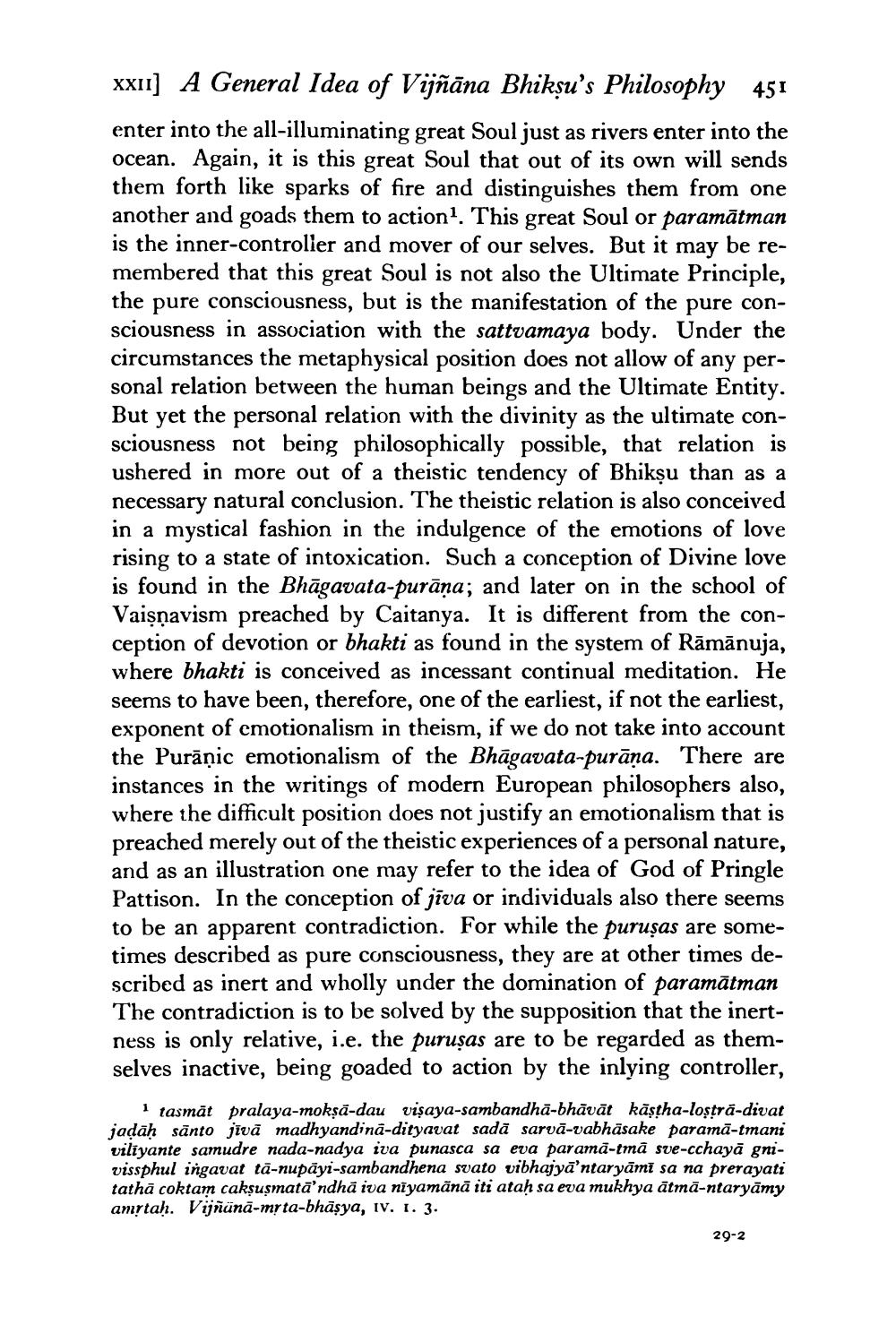________________
xx1] A General Idea of Vijñāna Bhikṣu's Philosophy 451 enter into the all-illuminating great Soul just as rivers enter into the ocean. Again, it is this great Soul that out of its own will sends them forth like sparks of fire and distinguishes them from one another and goads them to action?. This great Soul or paramātman is the inner-controller and mover of our selves. But it may be remembered that this great Soul is not also the Ultimate Principle, the pure consciousness, but is the manifestation of the pure consciousness in association with the sattvamaya body. Under the circumstances the metaphysical position does not allow of any personal relation between the human beings and the Ultimate Entity. But yet the personal relation with the divinity as the ultimate consciousness not being philosophically possible, that relation is ushered in more out of a theistic tendency of Bhikṣu than as a necessary natural conclusion. The theistic relation is also conceived in a mystical fashion in the indulgence of the emotions of love rising to a state of intoxication. Such a conception of Divine love is found in the Bhāgavata-purāna; and later on in the school of Vaişņavism preached by Caitanya. It is different from the conception of devotion or bhakti as found in the system of Rāmānuja, where bhakti is conceived as incessant continual meditation. He seems to have been, therefore, one of the earliest, if not the earliest, exponent of emotionalism in theism, if we do not take into account the Purānic emotionalism of the Bhāgavata-purāna. There are instances in the writings of modern European philosophers also, where the difficult position does not justify an emotionalism that is preached merely out of the theistic experiences of a personal nature, and as an illustration one may refer to the idea of God of Pringle Pattison. In the conception of jīva or individuals also there seems to be an apparent contradiction. For while the purusas are sometimes described as pure consciousness, they are at other times described as inert and wholly under the domination of paramātman The contradiction is to be solved by the supposition that the inertness is only relative, i.e. the purusas are to be regarded as themselves inactive, being goaded to action by the inlying controller,
1 tasmāt pralaya-moksă-dau visaya-sambandhā-bhāvāt kāştha-loştrá-divat jadah sānto jīvā madhyandina-dityavat sadā sarva-vabhāsake paramā-tmani viliyante samudre nada-nadya iva punasca sa eva paramā-tmā sve-cchayā gnivissphul ingavat tā-nupāyi-sambandhena svato vibhajya'ntaryāmi sa na prerayati tathā coktam cakşusmatā'ndhā iva niyamānā iti ataḥ sa eva mukhya ātmā-ntaryāmy amytah. Vijnünā-mrta-bhāsya, iv. 1. 3.
29-2




